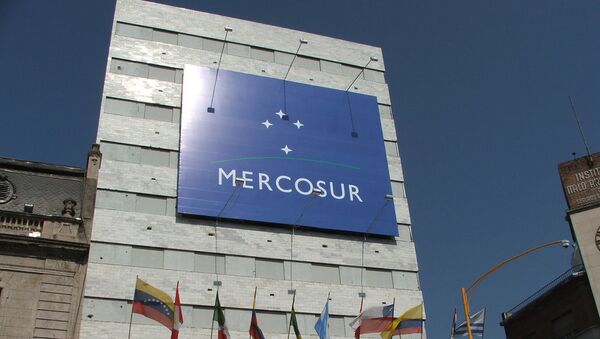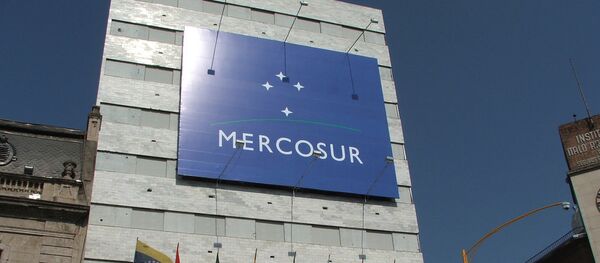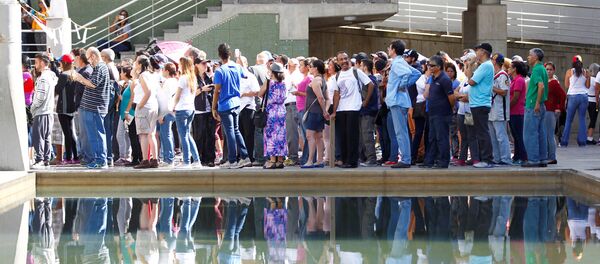Kristian Rouz – One of South America’s largest free-trade zones, Mercosur, is set to offer the EU a streamlined agreement, which would result in increased volumes in bilateral trade, lower tariffs, and looser regulations. Mercosur’s proposal would cut tariffs at a quicker pace, however, in return, the EU would have to agree to import more beef from South America.
READ MORE: Further Sanctions Against Venezuela in Mercosur Possible — Argentine FM
Argentina, Brazil, Paraguay, and Uruguay seek access to the EU’s food market, and see a free-trade deal as an opportunity to boost revenues for Mercosur’s agricultural producers. Meanwhile, the EU is looking at Mercosur as a large market for manufactured and consumer goods, as well as machine parts and business equipment.
Officials say the agreement is in the final stages of negotiations.
“At the very least, it can take a year or a year and a half until all this is ratified,” Mercosur chief negotiator Horacio Reyser.
The EU, for its part, says it is ready to give Mercosur an even better offer on beef in order to move the talks forward, but officials say tariff-free beef imports will not exceed 100,000 tons.
The European Commission received a formal proposal from Mercosur earlier this month, providing the updated terms for the free-trade deal.
While the trade deal would benefit the most industrialized EU member-states, such as Germany, France, or Slovakia, some EU members, however, are cautious about the looming influx of South American agricultural products.
"Suggestions of further concessions for beef market access and an increase of the current EU beef offer beyond 70,000 tons are completely unacceptable," Cormac Healy of Meat Industry Ireland (MII) said. "Given the huge uncertainty associated with Brexit and its potential impact on the EU beef market, now is not the time for a deal with Mercosur countries."
EU’s agricultural producers say Mercosur already has a significant presence on the European market, despite the existing tariffs. Meanwhile, a free-trade deal would greatly diminish the competitiveness of the EU agricultural produce, as costs of labor in the EU are higher than those in Mercosur.
Meanwhile, the benefits of the increased EU exports to Mercosur are uncertain, not least due to intellectual property concerns, as well as the possible widening outsourcing of jobs and manufacturing facilities to South America.
READ MORE: Mercosur Suspends Venezuela's Membership After Brazil's Request
"It is absurd that the EU should make substantial concessions on beef, sugar and ethanol when the EU market is not lacking in agricultural commodities and we do not know the outcome of the Brexit talks," Pekka Pesonen, Secretary-General of Copa and Cogeca said.
The proposed free-trade deal between the EU and Mercosur is also becoming increasingly politicized, as some policymakers say it could be their response to the resurgence of protectionism, isolationism, and economic nationalism in some advanced countries.
“At a moment when the Anglo-Saxon world is in retreat on both sides of the Atlantic … we should take advantage of that opportunity to reinforce cross-Atlantic ties between the EU and Latin America,” former Spanish foreign minister Josep Pique said.
Next year, Brazil has presidential elections, and supporters of the EU-Mercosur deal are pushing for the pact to be completed before then.
READ MORE: EU and Mercosur: Why 'Economic Integration' Has Nothing to Do With 'Free Trade'
Brazil, mired in corruption and high-profile government scandals, might elect a more isolationist and nationalist candidate as well – in attempt to fix its domestic issues instead of a greater involvement in global projects.



